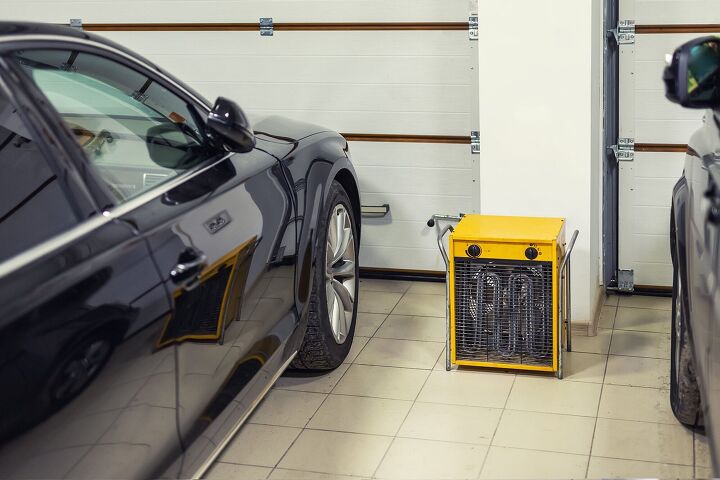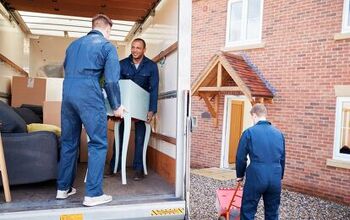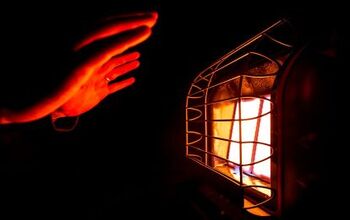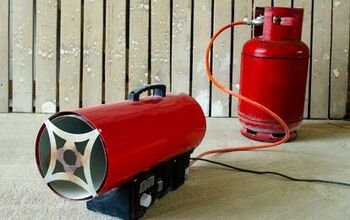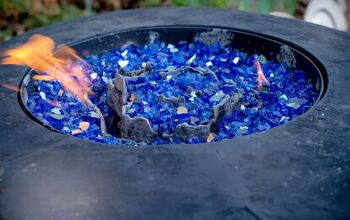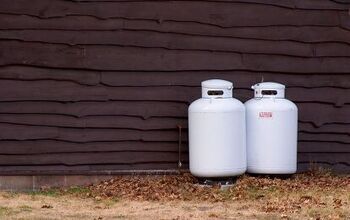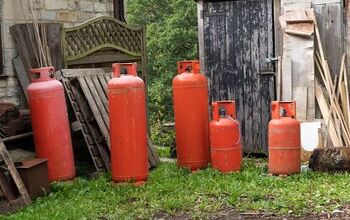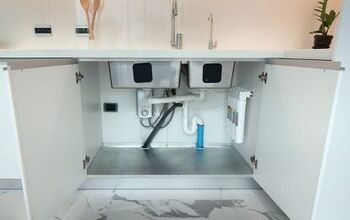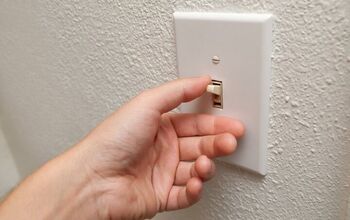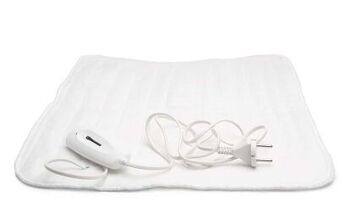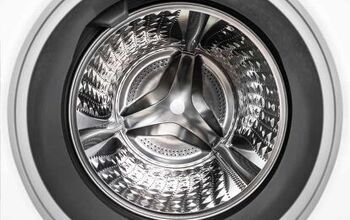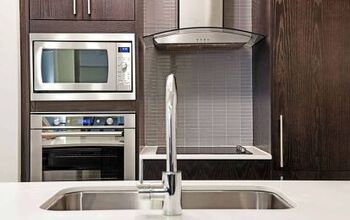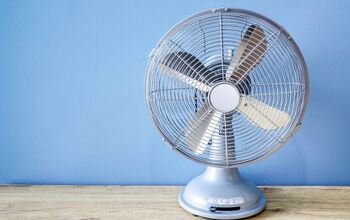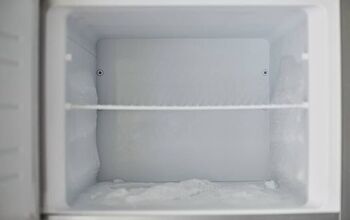Are Propane Heaters Safe In Garages? (Find Out Now!)

If you’ve turned a section of your garage into a woodworking shop, your own personal mechanic workshop, a man cave, or some other sort of hobby center, you likely want to keep it warm and cozy during the winter months. After all, those drafty garage doors, concrete flooring, and little to no insulation are why garages are often among the coldest spaces in a home.
Of course, you can insulate your entire garage and install piping that connects to your home’s central heating system, but this is a major expense. In this case, a space heater makes the most sense for enjoying your garage when it’s cold outside. With that said, you may be wondering, “Are propane heaters safe in garages?”
In short, yes. Not only are propane heaters safe, they are also a very economical way to heat your garage without breaking the bank. When compared to electric heaters, propane heaters are more affordable to operate. They are also easy to install and incredibly efficient, as they burn cleaner, with fewer emissions than both electric and fuel oil heaters alike.
Though, it’s important to keep in mind that propane is flammable, meaning you should still exercise caution when operating a propane heater in your garage.
Do You Need a Heating and Cooling Contractor?
Get free, zero-commitment quotes from pro contractors near you.

Are Propane Heaters Safe for Indoors?
In general, there are two main types of propane heaters available on the market: indoor and outdoor models. Indoor varieties are designed, and safe, for use indoors. If you choose a model that is intended for indoor use, then you’ll enjoy a safe and warm experience. However, choosing an outdoor-only propane heater means that the unit should only be used outdoors or in a space that has appropriate ventilation and a carbon monoxide detector.
When you’re searching for the right propane heater for your home, make sure you determine which model it is. Indoor and outdoor propane heaters manage the smoke they generate differently. If you were to use an outdoor propane heater under the wrong conditions, this could lead to carbon monoxide poisoning.
Carbon Monoxide and Propane Heaters
Burning fuel, whatever type it may be, produces many different byproducts. Propane is no exception and one of the most dangerous gases that it generates is carbon monoxide. Carbon monoxide (CO) can present major health concerns. It is a clear, odorless, and tasteless gas that can take a while to accumulate.
When you burn propane, carbon monoxide is always created. However, it can be easily dispersed when you have proper ventilation. But, how does this work with indoor propane heaters? Since these heaters are engineered to be used in enclosed spaces, the carbon monoxide doesn’t have anywhere to go.
To combat this issue, indoor propane heaters are outfitted with automatic shutoff switches that shuts off the heater if it detects insufficient levels of oxygen in the room. Some heaters even come with carbon monoxide detectors, which should be placed several feet from the heater to deliver the most accurate readings.
Note: Fortunately, most propane manufacturers add a distinct smell to the gas. That way, you can easily detect when there is a problem.
Are Propane Heaters Safe in Garages?
Like indoors, propane heaters are perfectly safe in garages. In fact, you can use both indoor and outdoor propane heaters in a garage. However, outdoor propane heaters should only be operated in a garage when the door is wide open. This allows the carbon monoxide to escape outdoors, while still keeping the heat inside.
An indoor propane heater, however, can be used safely in a garage whether the door is open or closed. When using a propane heater in your garage, make sure you keep an eye out for items surrounding the heat that could present a fire hazard – particularly flammable objects. Keep the heater away from gasoline, chemicals, lawn clippings, other propane tanks, and other flammable materials.
Propane Heater Safety Tips
Again, when used properly, indoor and outdoor propane heaters are perfectly safe to be used in a garage. However, here are some general safety tips to follow that can give you some more peace of mind when operating a propane heater.
1. Install a Carbon Monoxide Detector
One of the first things you should do if you plan on using a propane heater in your garage is to purchase a carbon monoxide detector. These helpful devices will monitor the CO levels in your garage for you. Should they ever reach a concerning level, the detector will make a noise to alert you – similar to a smoke detector.
With a carbon monoxide detector, you have peace of mind knowing that if something does go wrong, you’ll be the first to know.
2. Never Leave the Heater Unattended
Keeping an eye on your propane heater is a great way to ensure safety. It’s far too easy for a pet, child, or a sudden burst to knock off your heater when you’re out of the room. Instead, make sure that you are always in the vicinity when the heater is running.
3. Only Operate the Heater as Needed
Another great way to stay safe when operating a propane heater is to only use it as needed. This reduces the wear and tear on the machine and, by turning off the heater every couple of hours, it allows the carbon monoxide to properly dissipate.
Do You Need a Heating and Cooling Contractor?
Get free, zero-commitment quotes from pro contractors near you.

4. Move and Store Your Propane Heater Correctly
Properly maintaining your propane heater also includes taking care of it when it’s not in use. Overall, most heaters should only be relocated and placed in storage while positioned upright. Tipping them over slightly or storing them on their side can disturb the internal components.
Additionally, all tube and fuel sources should be disconnected when you’re not using the heater. This reduces the chance of leaks.
5. Turn Off the Heater If You Smell Something Strange
Carbon monoxide may not have an odor or a taste, but propane does. If you smell anything odd, turn off the heater immediately. Then, open your garage door and look for leaks. Your heater may not end up being the cause, but it’s better to be on the safe side.

Jessica considers herself a home improvement and design enthusiast. She grew up surrounded by constant home improvement projects and owes most of what she knows to helping her dad renovate her childhood home. Being a Los Angeles resident, Jessica spends a lot of her time looking for her next DIY project and sharing her love for home design.
More by Jessica Stone



